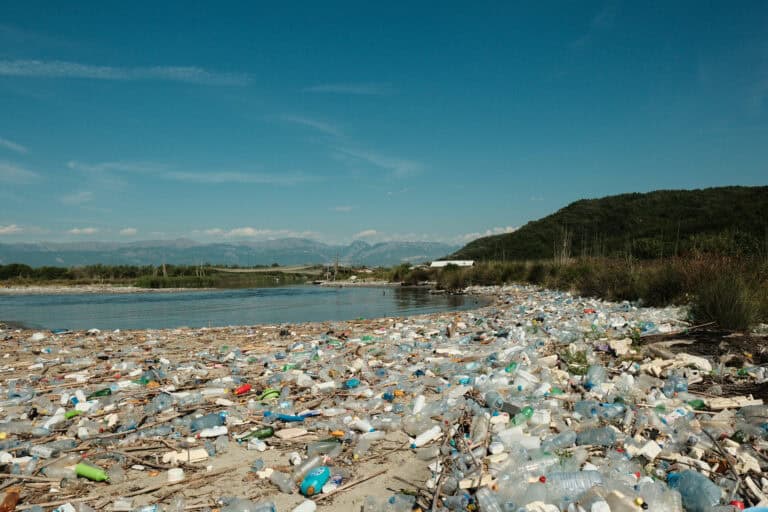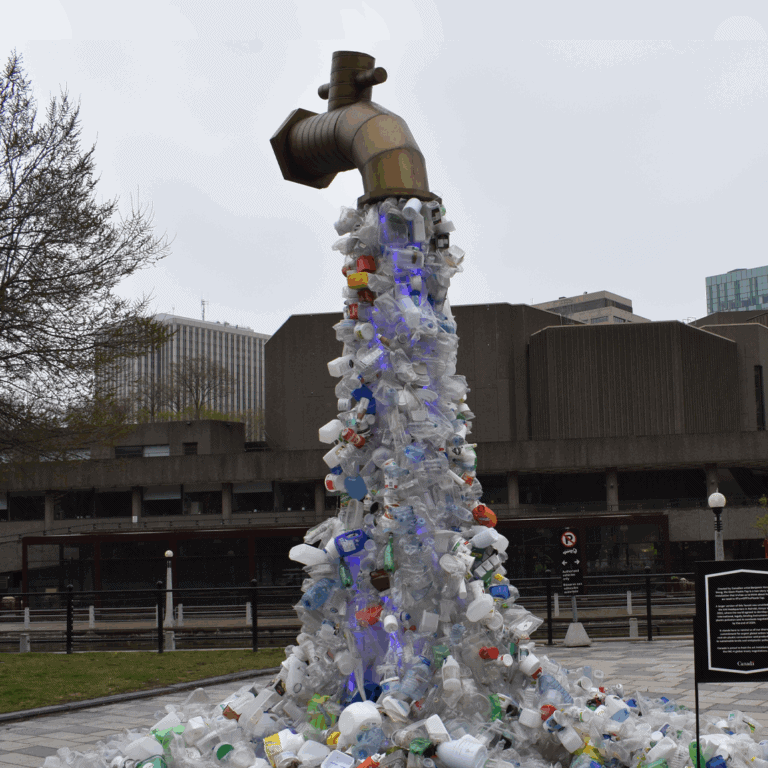Negotiations on a Global Plastics Treaty
From 4 to 14 August 2025, the United Nations in Geneva will continue negotiations on a global plastics treaty.
The road to a global plastics treaty
In 2022, the UN Environment Assembly (UNEA) gave the starting signal: the goal is to negotiate, at the United Nations level, a global, legally binding agreement to combat plastic pollution. The entire life cycle of plastics is to be regulated – from production and use to disposal.
In 2022, the Intergovernmental Negotiating Committee (INC) then began its work, with the original aim of concluding negotiations by the end of 2024. Since then, a total of five negotiation rounds have taken place – most recently INC-5 in November 2024 in Busan, South Korea, which will be continued in August 2025 in Geneva. In Busan, more than 100 countries had already agreed on a possible negotiation package, which represents a step forward in principle.
The negotiation package from Busan serves as the basis for the further talks in Geneva and contains key elements for a binding agreement, including a target to reduce plastic production and a ban on problematic single-use plastics and harmful chemicals.

Key questions remain unresolved for Geneva
The negotiations have now reached a political level – for Geneva, more than 70 high-ranking political representatives have announced their participation. In addition, it will see the largest ministerial involvement to date: more than 3,000 participants are expected, including government officials, delegates from member states, and representatives from organizations (NGOs, as well as industry lobby groups).
The aim is to agree on a final text for the treaty; however, the positions of the states still differ widely on many key elements. In particular, lobby groups from major plastic corporations and oil-producing countries such as Saudi Arabia, Iran, and Russia are trying to block a strong plastics agreement.
The most important unresolved question remains whether the treaty will actually address the entire life cycle of plastics or focus only on plastic waste at the end. For the plastics treaty to effectively protect human health, the environment, and the climate, it must cover the entire cycle – from production and use through to disposal.
INC-5.2: Negotiations in Geneva
The negotiations in Geneva are proving difficult. Even toward the end, no agreement is in sight – the points of contention are the still-open issues from Busan: limiting plastic production and banning hazardous chemicals. While the majority of around 180 countries, such as Germany, the EU member states, Panama, and Mexico, are pushing for stricter regulations, oil-producing countries are resisting.
At everwave, as part of the Innovation Alliance for a Global Plastics Treaty, we are convinced that this moment is too important to settle for half measures. That is why we advocate for a strong and comprehensive, globally binding agreement – one that tackles plastic pollution at its source and prevents waste from ever reaching our rivers and oceans.



